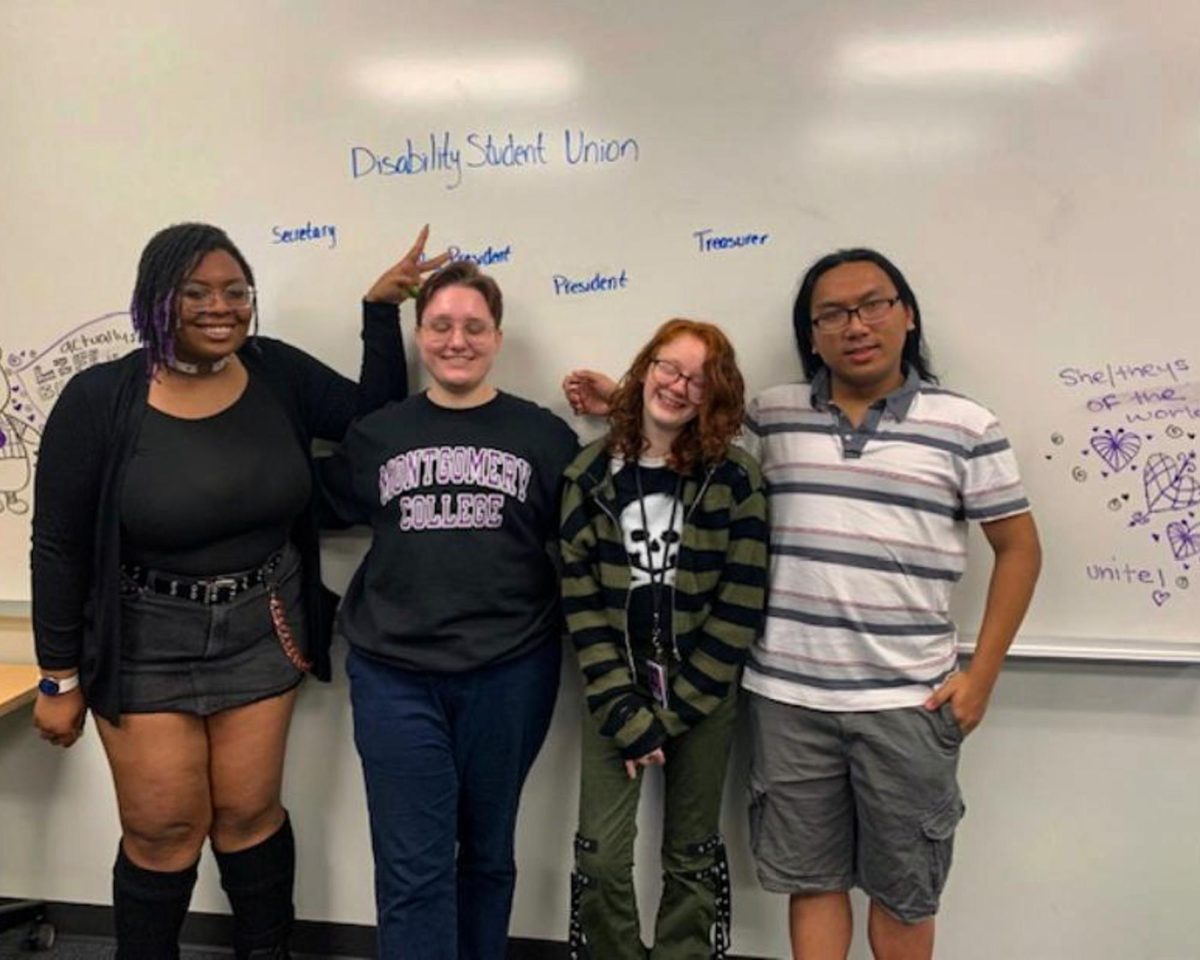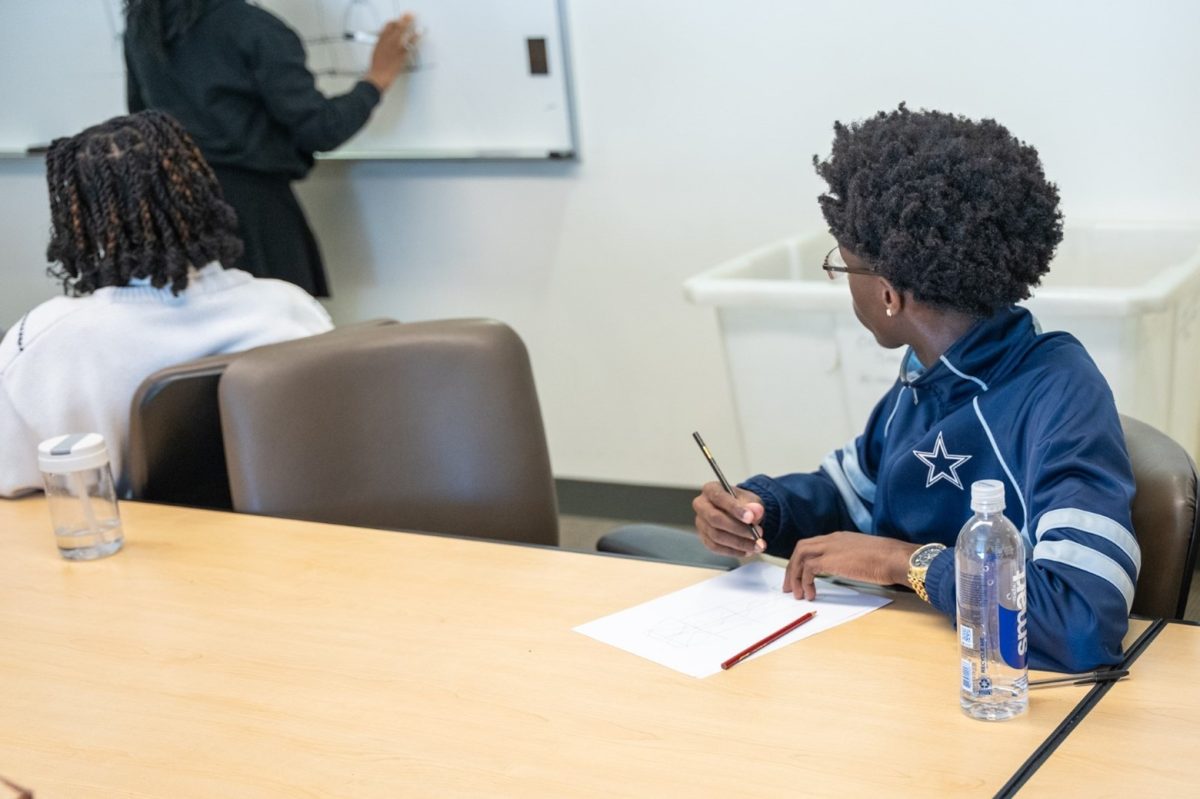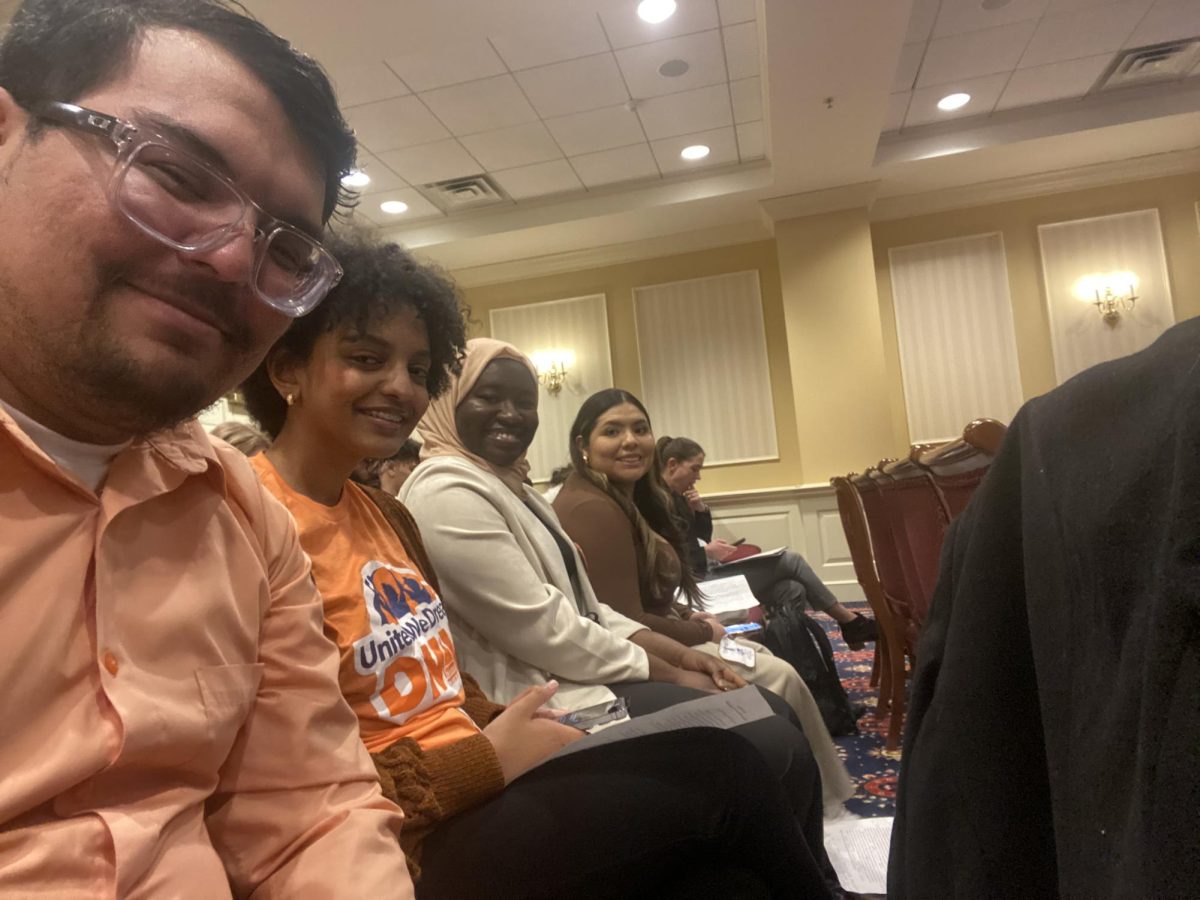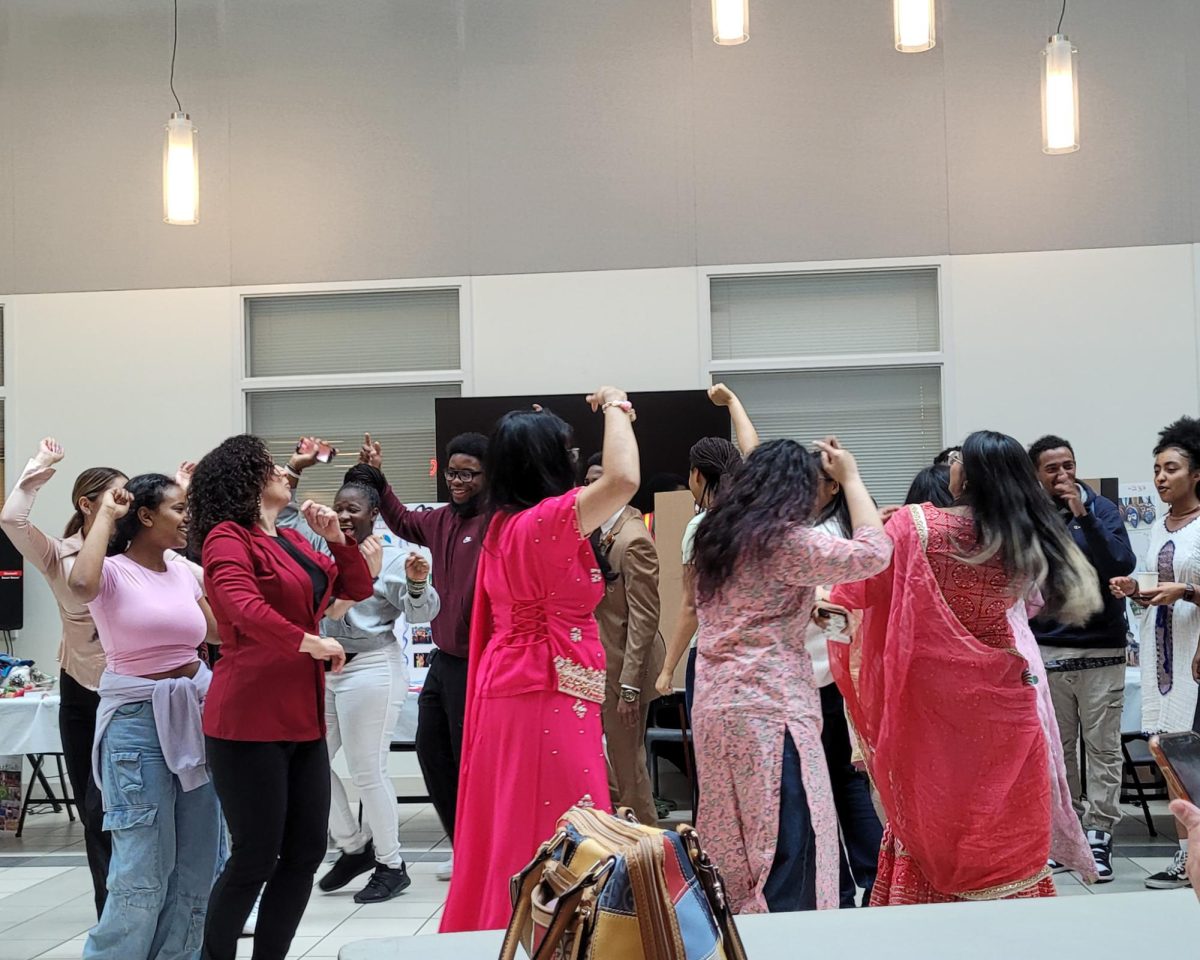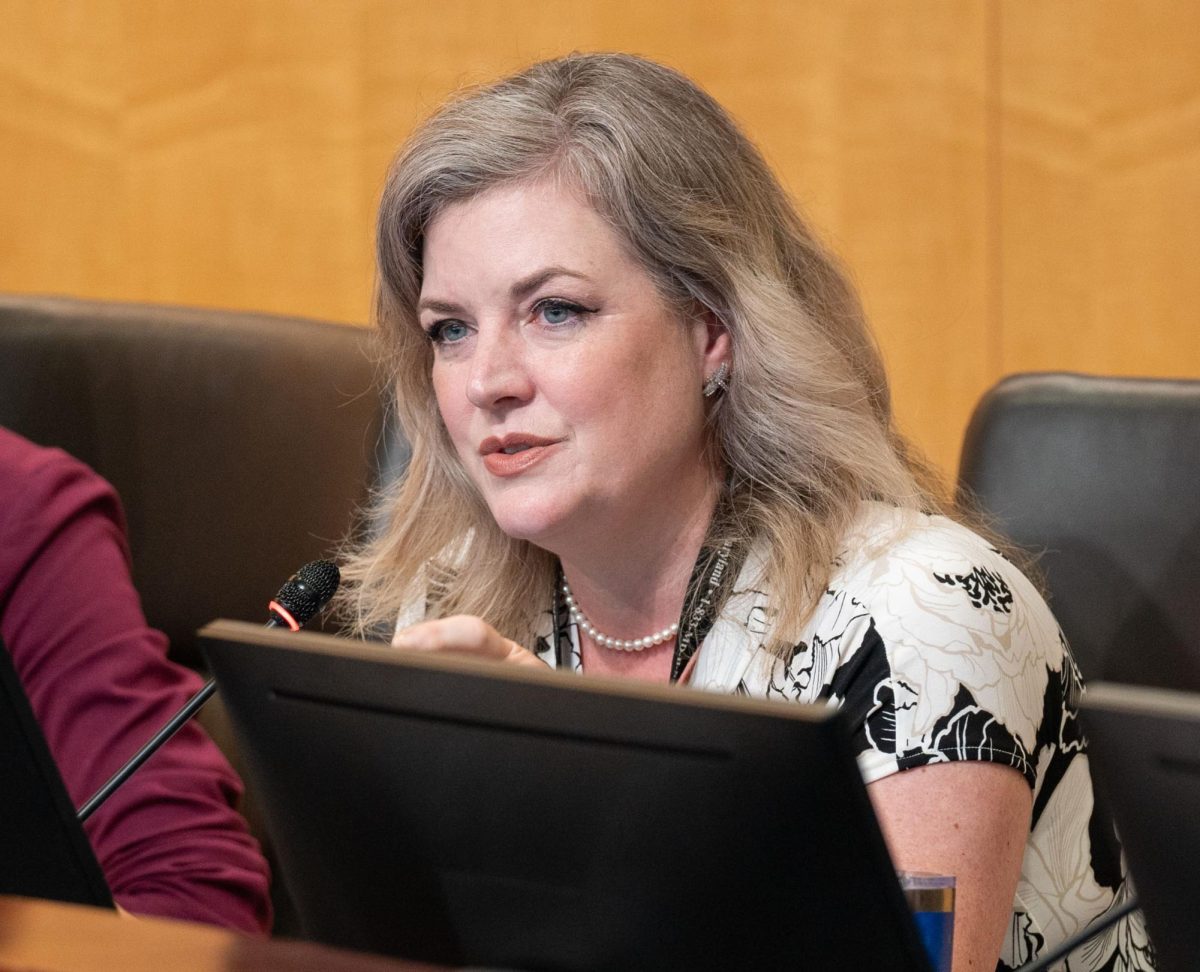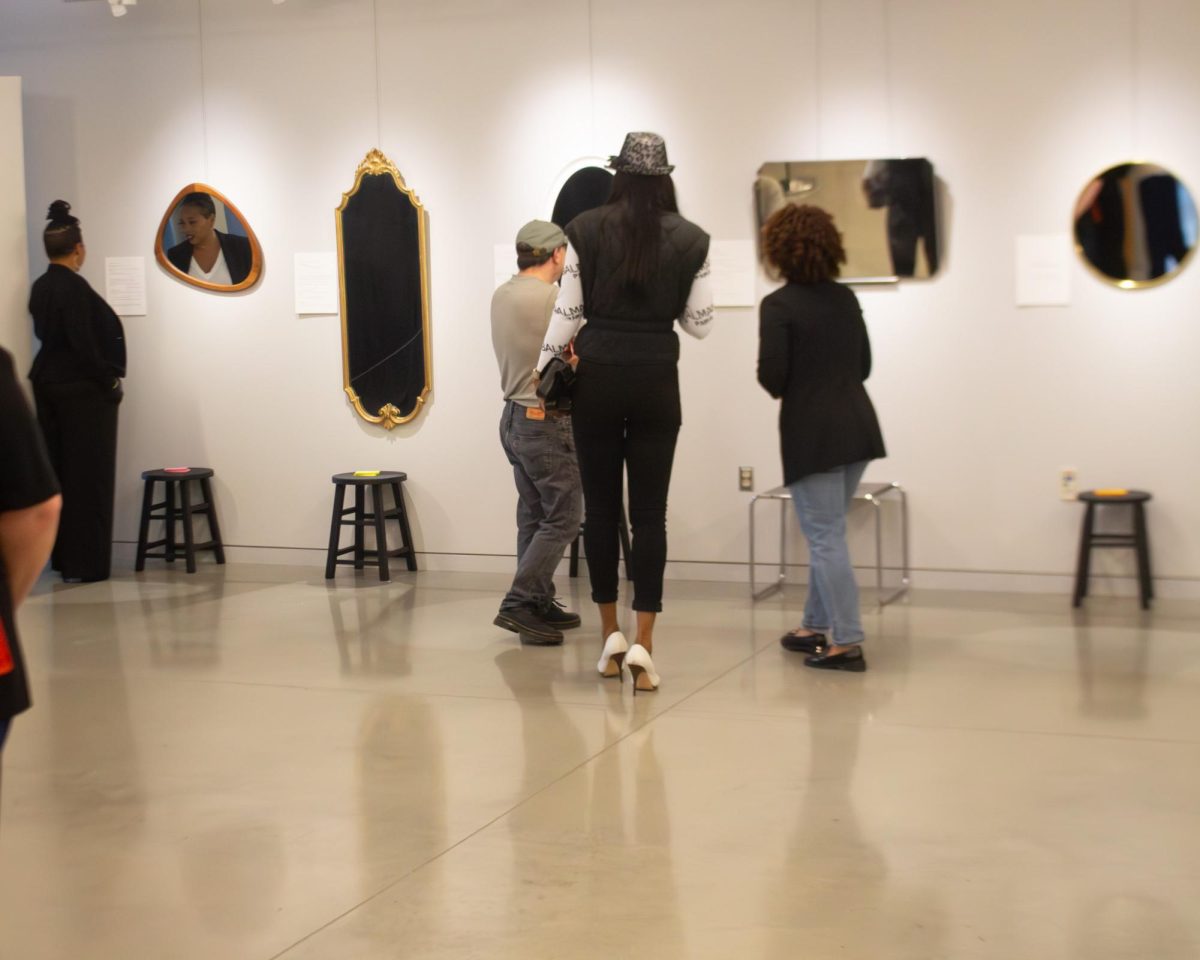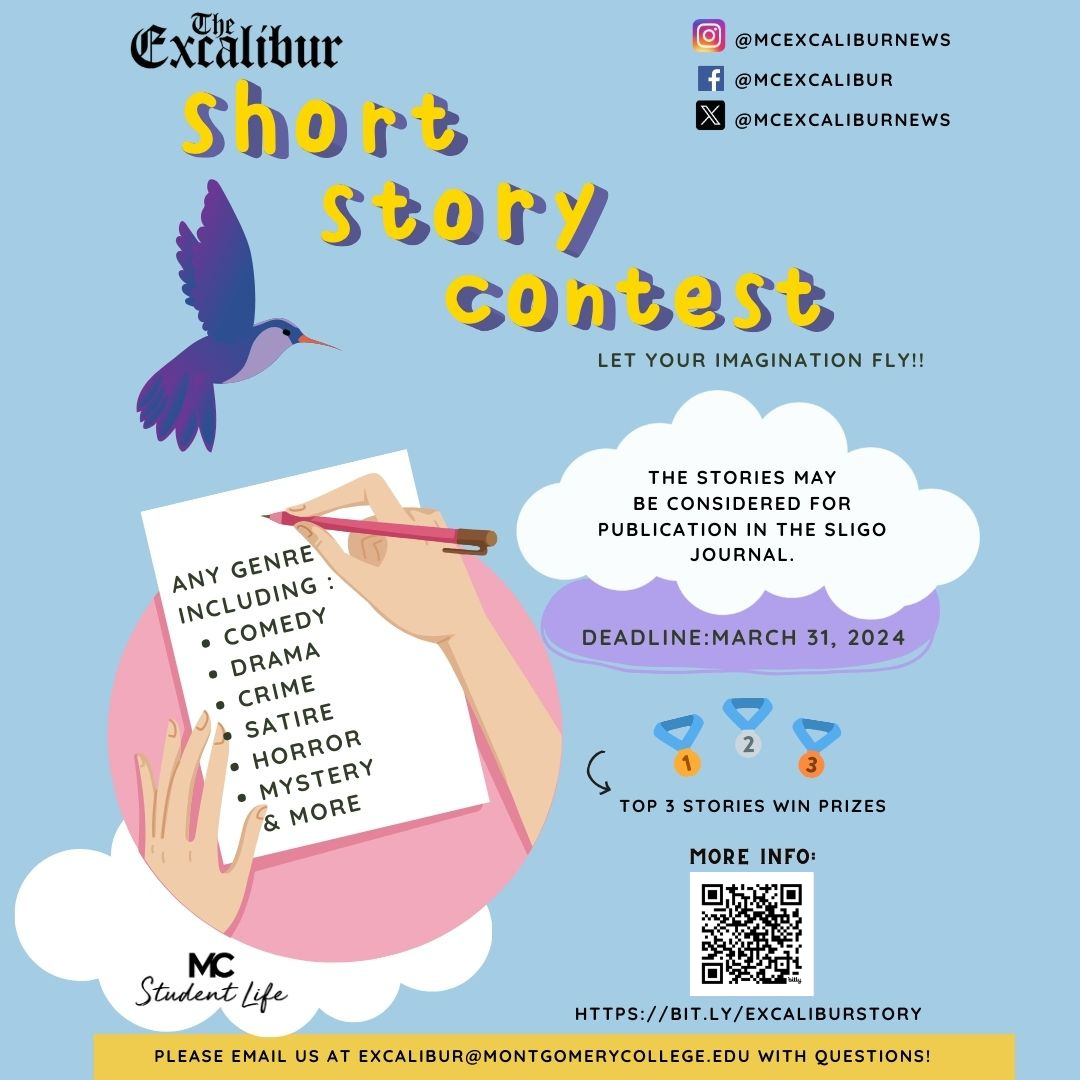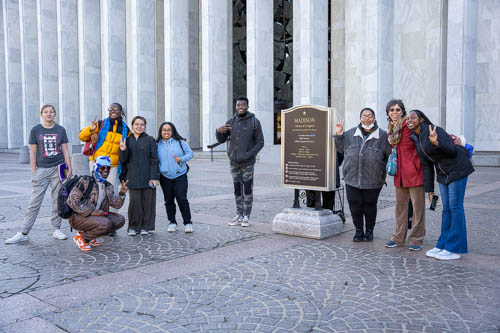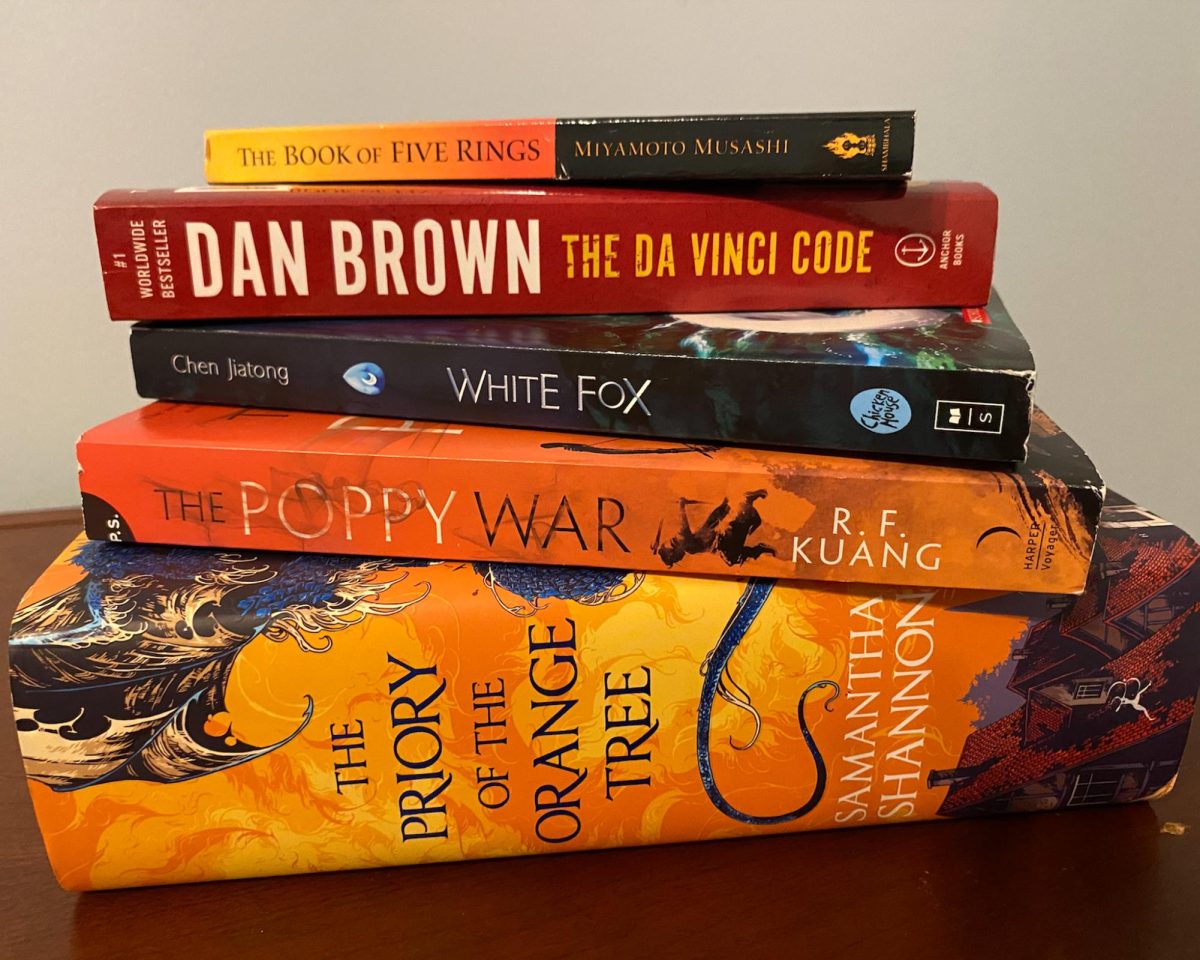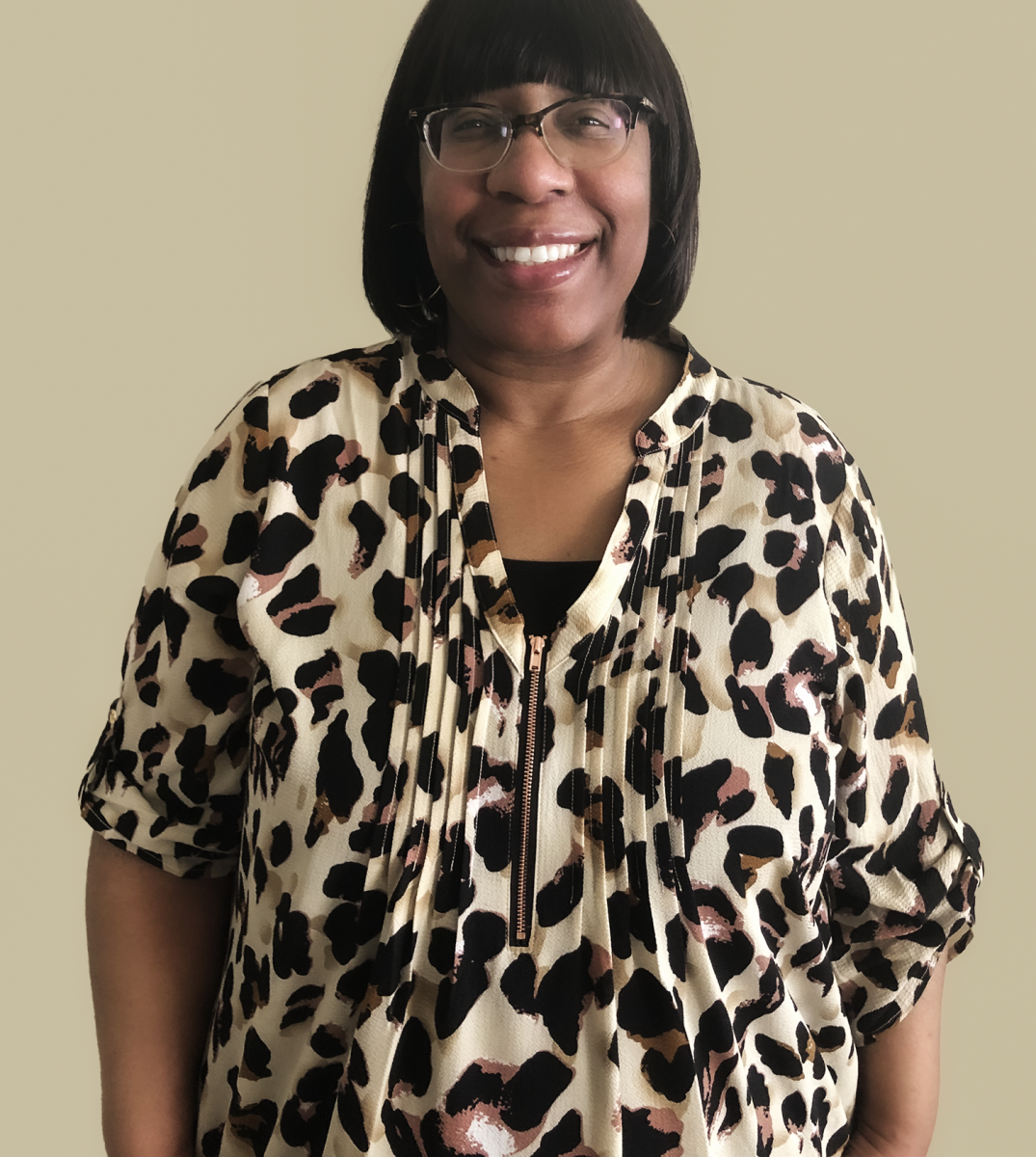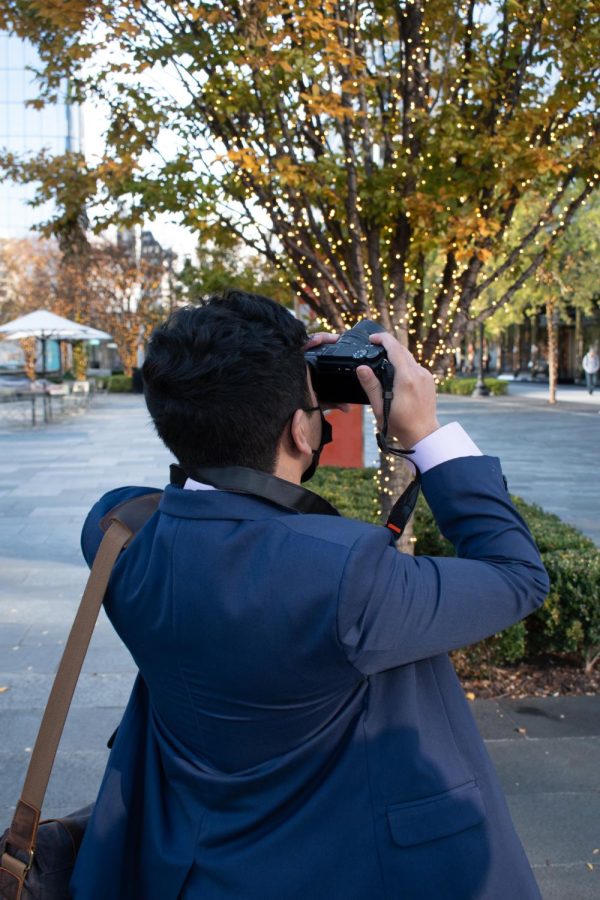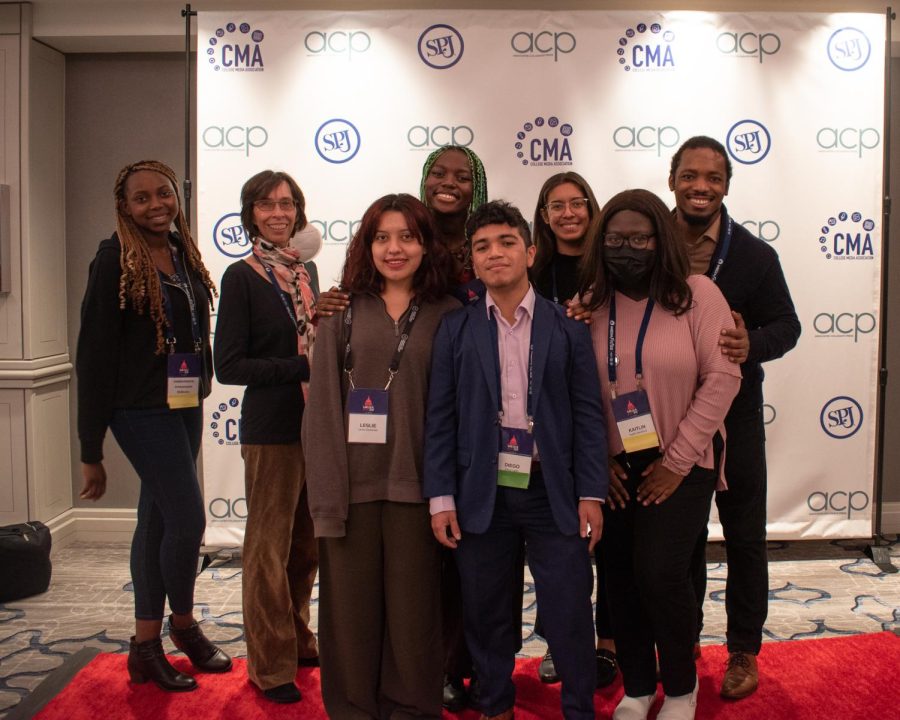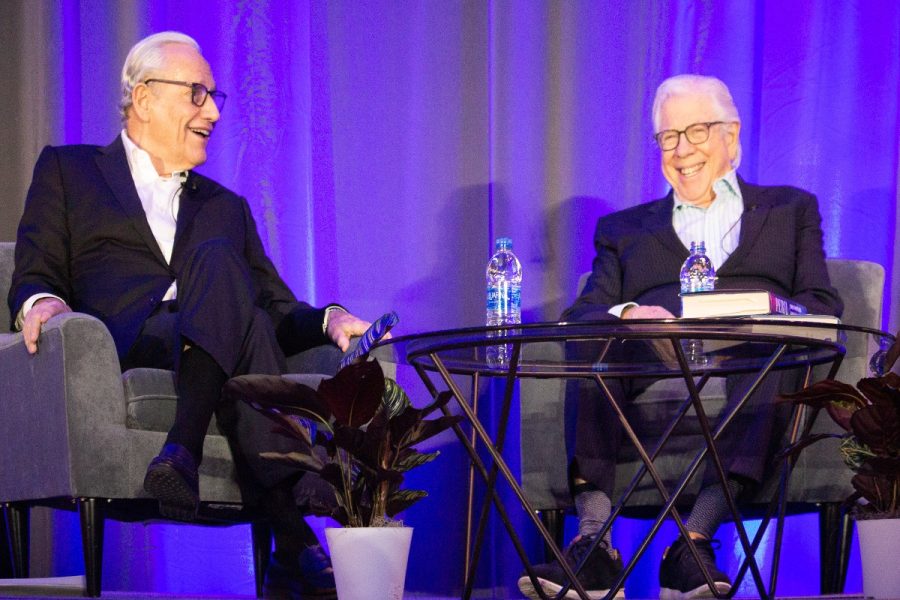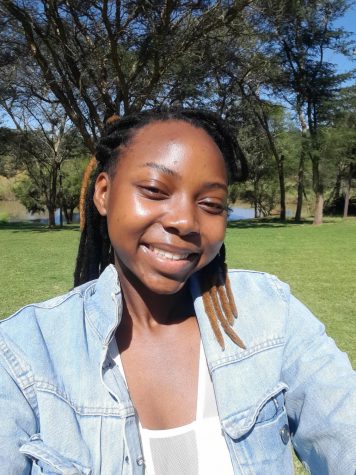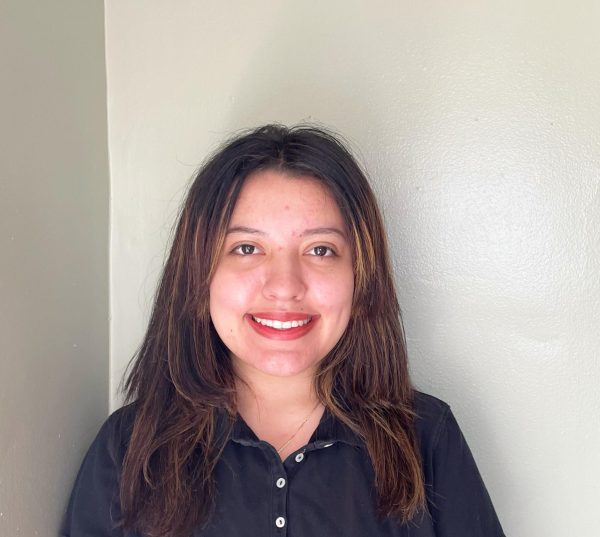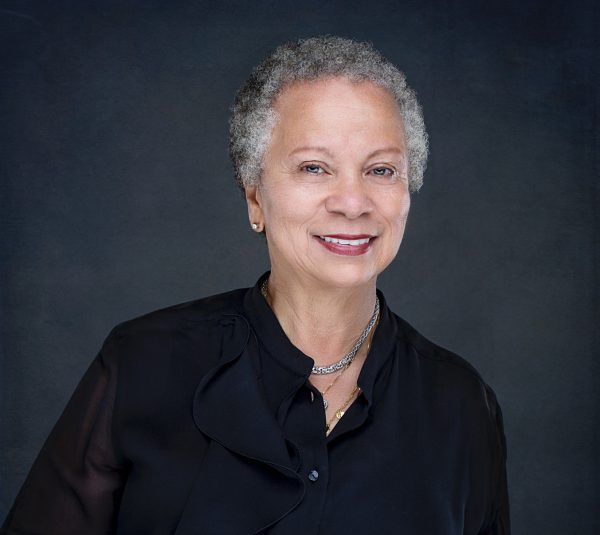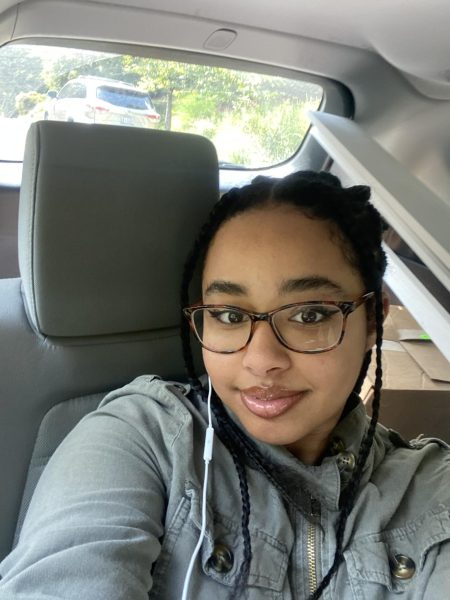A Barbie Fashion comic book from the 1990s.
A newspaper written from jail by John Zenger, a journalist jailed for publishing articles deemed critical of the government in the 1730s.
An original copy of the Black Panther, a community news service running from 1967 to 1980 affiliated with the Black Panther Party
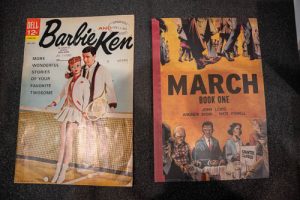
These are some of the historical items that Excalibur students got to experience up close at the Library of Congress last month.
During last month’s trip, members of The Excalibur got to explore various texts in the Library of Congress’ Manuscript Division and Newspaper Reading Room which are located in the Madison building.
The Manuscript Division has papers of thousands of famous people, their diaries, letters, personal photo albums, drafts of manuscripts, and other unpublished papers. Some of these people are famous for their scientific breakthroughs, some for their artwork, and others for their activism.
With all these resources at their disposal, students had the opportunity to conduct research on an area or person of their choice.
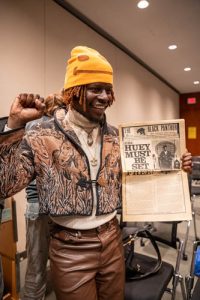
Carrying out research at the library had the added benefit of actually handling some of the original documents kept by the library; with the exception of certain documents that need clearance and others with fragile paper, aged over time, which can only be handled by LOC Staff.
Leslie Quinonez
The trip was a unique experience for me because I did not actually know the Library of Congress (LOC) existed and that we, as Montgomery College students, had access to the information stored at LOC.
In the manuscript room in the Library of Congress, I researched material on Mary Craig, a female journalist. I looked and read a collage with clips of her articles, letters that she wrote, and documents that mention Craig. Something interesting I found was a letter written by Pauli Murray, a civil rights activist in 1975 who wrote about Craig’s contribution to making employment sex-based discrimination illegal in 1964.
In the letter, Murray wrote that Craig interviewed Howard W. Smith on TV. He was a member of the House of Representatives at the time. During the interview, Craig asked Smith about his thoughts on adding “sex” to Title VII, and he responded with, “I don’t know. I just might do that for you ladies.” Murray then wrote that on February 8, 1964, Smith introduced the amendment to add “sex” to Title VII of the Civil Rights Act of 1964, and it was added, making it illegal to discriminate against employees and job seekers based on their sex along with race, color, and more. Murray wrote that Craig did not seek recognition for what she called “signal service.”
Simret Aleligne
I had many books on the table with me in the Newspaper Reading Room, but the one I focused on was a book that contained votes made on specific resolutions followed by the exact resolutions passed by the UN in 1948-1949.
The book contained three sections; the first section was the index.
The second section was pages detailing the voting cards for each resolution passed in 1948-1949. A voting card is a card that is used by the representatives of member states in the United Nations to cast their votes on resolutions. This section showed the votes each country made, the number of the resolution, and the tallies of votes from both sides.
The third section contained the resolutions. There were two columns of text on each page that one had to follow as if it were a bible in order to read the resolution. The book was very simple to navigate despite its lengthiness because of these sections.
I have always been interested in understanding international law; however, the history and current events of the Hamas-Israel conflict has me more interested. I found in the book that there had been resolutions specifically about Palestine. One such resolution stated that Palestinians should have the right to travel freely “by road, rail or air,” especially to the Holy Lands that resided within historical Palestine.
Another resolution stated that religious locations in Palestine should be protected, especially those in the Holy Places. These resolutions were made very soon after the beginning of Palestinian’s displacement from their homes so the resolutions might have changed since then; however, it is very interesting to note the history behind these laws and this situation.

Shirley Washington
The Library of Congress field trip was very organized and fascinating. Professor Lisa Nevans Locke, the Excalibur’s advisor, provided links to resources for Finding Aids, LOC’s online tool for finding information on a person or topic of interest, and Pre-registering for a Reader Identification Card. I was interested in reviewing the holding papers of both, Gordon Parks, a photographer, writer, filmmaker, and composer and Ella Fitzgerald an American jazz and pop vocalist and recording artist. It turned out that Parks had many boxes of papers. After browsing the Finding Aids, I selected Boxes 8, 30 and 35 to review.
Handwritten and typed notes were included inside the boxes. I was elated to actually see the following: a diagram of the setting of Parks’ first novel, The Learning Tree, and six months of royalty statements from the book ending on Dec. 31, 1968. I was also amazed to see typed letters from two publishers wanting to print Park’s book: The Viking Press and E. P. Dutton & Co. Dutton’s royalties included eighty cents each for the first 10,000 copies, $1 each for copies 10,001 – 15,000, $1.30 each for copies 15,001–20,000, and $1.50, thereafter. I thought Dutton’s royalties were rather cheap.
I was also excited to find Parks had once scheduled a book at the humongous Riverside Church in New York City where I enjoyed touring. In addition, Parks also had many newspaper clippings and notes about Malcolm X and Elijah Muhammad. I do plan to return to The Library of Congress to continue my readings about Parks’ photography and his production of Shaft.
Vimbainashe Mabvaru
I chose to read about psychoanalysis, a topic that I have always found intriguing because it aims to find methods of treating mental illness.
I had the opportunity to look at Dr. Paul Federn’s papers. Federn was one of the first people to explore and develop psychoanalysis. His research helped me understand how psychoanalysis was viewed in the period ranging from 1904-1950, seeing as the few letters between him and his patients that I read showed them making progress.
I was able to read some of his letters from doctors with which he was working. One doctor wrote, “She is afraid of the reality of her situation, and on the other hand she is afraid of becoming too attached to the hospital. She was finally discharged at her own request.” This was in regard to a patient, who was described as, “Full of impulses to leave.” Although the patient was named in the letters, I would like to protect her privacy. I hope to read more about this case and see if this patient was finally able to stay long enough to get better.
The LOC also has digital copies of some of the papers stored there. It would be good to contact the library ahead of time to ensure physical copies for the chosen area of study are on site when people visit.
All Montgomery College students can make use of the Library of Congress’s resources, one of those being, Chronicling America, a database with all digitized US newspapers from 1770 to 1963.



